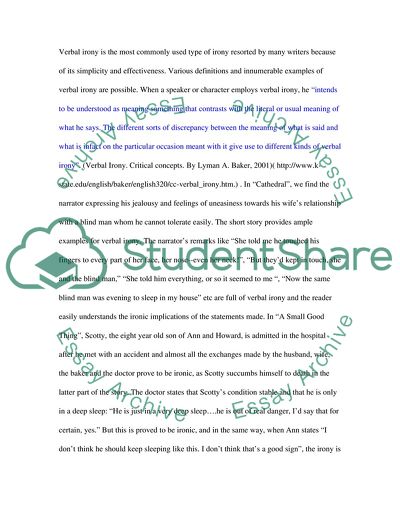Various Types of Ironies Used by Carver Essay Example | Topics and Well Written Essays - 1500 words. https://studentshare.org/literature/1708265-essays-on-fiction
Various Types of Ironies Used by Carver Essay Example | Topics and Well Written Essays - 1500 Words. https://studentshare.org/literature/1708265-essays-on-fiction.


